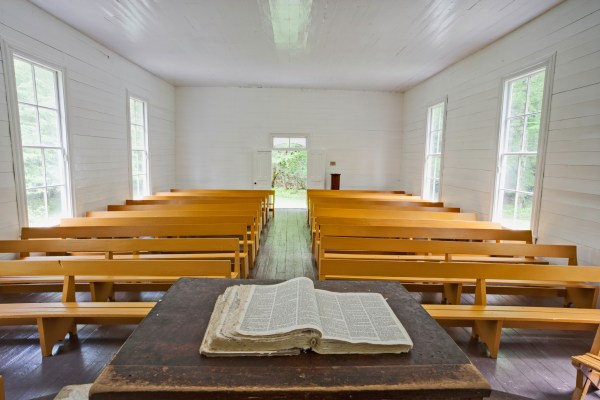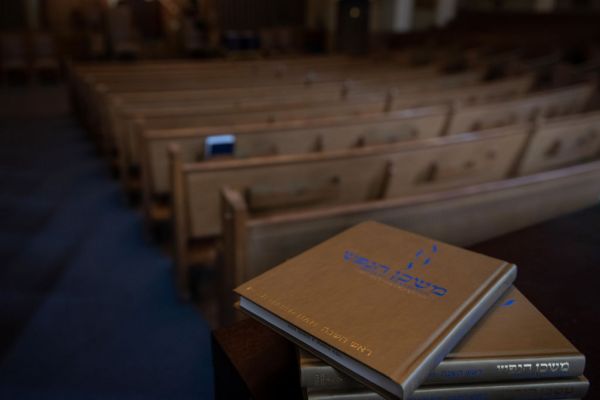Happy Sunday! Just want to affirm the truthfulness of the meme below for any past, present, or prospective writers for us at The Dispatch.
Except for that one writer. You know who you are.
A recent Newsweek story proclaiming “Conservative Campuses Are Facing Campus Culture Problems” became a topic of conversation in The Dispatch’s Slack channel last week, and for good reason. For years, it was mostly conservatives complaining (often correctly) about institutions or groups “canceling” those with thom they disagreed. As the Newsweek story highlighted, however, it’s not just the political and cultural left that has a cancel culture problem. “An increasing number of academics are speaking out about Christian colleges, claiming they were forced out of their jobs because of the rising intensity of conservative politics on campuses,” the lead paragraph declared.
It’s true enough. As politics usurps religion as the realm where more and more people are looking for ultimate meaning—a problem Jonah identified on The Remnant earlier this week—drawing hard-and-fast lines around political loyalty rather than theological positions has become more common.
The problem I saw with the Newsweek story, though, was that it didn’t make much of an attempt to help readers understand when the Christian institutions it reported on were drawing prudent boundaries about first-order theological or ontological issues and when they were being petty and fearful. Some of the issues in question require prudential judgment calls (outlining commitments on human sexuality that have obvious implications for belief about human identity, for example). Others, not so much. What I wished had been in the story was the degree to which some of the institutions mentioned made good-faith efforts to wrestle with those questions.
Enter this week’s Dispatch Faith essay from John Inazu, a professor of religion and law at Washington University in St. Louis and the author of Learning to Disagree: The Surprising Path to Navigating Differences with Empathy and Respect. Below, he tries to help institutions and individuals think through what cancel culture is, what it isn’t, and how institutions—especially faith-based ones—can properly define themselves.
John Inazu: Not Everything Is Cancel Culture

Cancel culture finally caught up to me last week. After giving hundreds of public talks over the past decade—many of them on controversial topics like religious freedom, protests and policing, and the challenges of pluralism—I finally proved too risky. The reason: an article I wrote eight years ago in USA Today, “How to Unite in Spite of Trump.”
I had been scheduled to speak at a private Christian school this fall on my latest book, Learning to Disagree. Last week, I was informed that someone influential in the school had learned I was coming, discovered my USA Today article, and decided I had been too critical of Trump. Based on his concerns, the school disinvited me from coming to talk about how Christians can work toward better disagreement across differences.
You can read the article and decide what you think for yourself. It’s consistent with much of what I write: sharply worded but relentlessly nonpartisan, attempting to point out blind spots in multiple directions. It’s also one article from eight years ago—anyone who spends a few minutes skimming my public writing should recognize that my work isn’t defined by partisan politics.
I don’t feel personally slighted or damaged. Unlike some cancellations that cost reputations or careers, the stakes for me were relatively low. It was a speaking gig; there will be others. What I do feel is sadness for my erstwhile host and other educational institutions that do not seem to understand when and why people and perspectives should be excluded from their ranks.
This brings me to Rachel Dobkin’s recent Newsweek article about cancel culture on Christian college campuses. Dobkin defines cancel culture as ostracizing “an individual perceived to have acted in an unacceptable manner.” She recounts examples of teachers who were forced or pressured out of conservative Christian colleges, usually after voicing perspectives about gender, race, or sexuality. Some of these stories involve vaguely worded institutional policies seemingly invoked to stifle dissenting views, such as such as Aaron Werner’s dismissal from Liberty University after he cautioned students that “it is dangerous to attach Christianity too closely to any one political or economic system and to assess the claim that America was founded as a Christian nation, among other hot-button topics.”
Of course it’s not just religious conservatives who have a record of caving to pressures and canceling those who don’t share their views. Seven years ago, Princeton Seminary, the flagship seminary of the liberal Presbyterian Church (USA), rescinded an award to pastor Tim Keller after facing backlash from progressive voices among its ranks over Keller’s more conservative denomination (the Presbyterian Church of America) excluding “women and LGBTQ+ persons from full participation in the ordained Ministry of Word and Sacrament.” And there is no shortage of recent examples of students, faculty, and administrators at progressive, non-religious institutions canceling, uninviting, or otherwise disrupting conservative speakers.
It’s also worth noting that institutional efforts to silence or exclude dissenting perspectives—whether from conservative or progressive corners—do not always amount to cancel culture. For example, had the school that disinvited me been formed to “make disciples in the image of Donald Trump,” then my speaking there would have been fundamentally inconsistent with its mission. Similarly, if Princeton Seminary’s mission were to train only future clergy who adhered to certain progressive orthodoxies, then perhaps Tim Keller should never have been honored in the first place.
Every institution draws boundaries. Many religious organizations require their leaders to adhere to certain faith commitments. Honor societies require members to maintain certain grades and credentials. Professional orchestras reject talentless musicians, and professional sports teams pass on unathletic contenders. None of those exclusions is the least bit objectionable—nobody is canceled simply because they do not fit within an institution’s boundaries.
Christian educational institutions—like the one that disinvited me and the ones profiled in Newsweek—also set boundaries. Some of those boundaries are designed to keep an institution aligned with its core mission or founding documents. Some of them are meant to keep relevant constituencies united around mission. In other words, boundaries are not only inevitable; often, they are good.
But greater clarity around the nature and justification of those boundaries would help Christian educational institutions, and the rest of us, better parse the difference between lamentable cancel culture and laudable coherence. That in turn requires these institutions to know and understand their own core commitments. As I’ve written elsewhere, the boundaries set by expressive restrictions, including who is in and who is out, inevitably “reflect something about a community’s goals, values, and—ultimately—its purpose.” Under the First Amendment, private institutions are generally free to draw whatever boundaries they want. But they should still seek to explain those boundaries and enforce them equitably and fairly.
Institutional boundaries can take many forms: a liberal seminary with admissions thresholds but no creedal requirements; a conservative college that requires all faculty and students to comport with standards regarding marriage and sexuality; a missional high school that requires teachers to profess specific faith commitments but welcomes students of all faiths and no faith. Once these boundaries are set, institutions should adhere to them and express them clearly. When it comes to mitigating cancel culture, the most important questions are less about the nature of substantive commitments and more about the consistency with which those commitments are articulated and embodied.
Once an institution sets clear boundaries, it should stick to its commitments and convictions. On the one hand, this means owning the consequences of enforcing relevant boundaries. For example, if an institutional boundary excludes women from leadership, then its leaders should be prepared to answer public critiques of that position. On the other hand, institutional leaders should be prepared to withstand internal and external pressures to create ad hoc boundaries. If a major donor insists on drawing a line not formally adopted by the institution, it might be time to cut ties with the donor. Far better to suffer financially knowing who you are than to venture into well-funded mission drift.
Institutions—like people—function best when they know themselves well enough to articulate the reasons for their commitments and beliefs. That self-awareness in turn allows for riskier and more creative partnerships. When an institution understands itself, it can welcome different viewpoints from its guests and collaborators. A Christian university that is clear about its commitments, for example, might bring in a speaker from another faith tradition without people believing that the university endorses the speaker’s theology. This kind of exposure to difference often allows students to sharpen their own understanding. Similar principles can guide faculty hiring at the intersection of mission alignment and academic freedom—a particularly salient challenge for higher education institutions. The evangelical Fuller Seminary recently appointed Muslim scholar and journalist Shadi Hamid as an assistant research professor of Islamic studies. In that role, and with a clear understanding of the relationship, Hamid’s appointment might sharpen rather than diminish Fuller’s distinctive evangelical culture.
In the end, greater clarity about institutional boundaries—which is really greater clarity about purpose, mission, and values—will likely lead to less canceling. And perhaps a little more courage, too.
More Sunday Reads
- On July 27, a Hezbollah attack in northern Israel killed 12 children on a soccer field. They were all Druze, a small religious sect that broke off from Islam 1,000 years ago, with present-day communities in Israel, Lebanon, Syria, and elsewhere. On the website today, we published a piece from Scott Salvato explaining who the Druze are, what they believe, and how they fit into the broader Middle East context. “The Druze are a small, distinct religious and ethnic group originating in Lebanon in the 11th century and becoming an important factor in the region thereafter. Though an offshoot of Islam, they follow a unique, secretive belief system that blends elements of that religion with Gnosticism and Neoplatonism among other philosophies,” he writes. And later: “The Druze often play significant roles in the political and military spheres of the countries where they reside, balancing their unique identity with national integration. Still, they emphasize Druze unity and self-preservation in a historically volatile region by often living in close-knit and insular communities.”
- Presumptive Democratic vice presidential nominee and Minnesota Gov. Tim Walz is learning what it’s like for his life to be put under the proverbial microscope this week. On Tuesday, Religion News Service reporter Jack Jenkins provided a helpful look at Walz’s Lutheran faith. “There are multiple Lutheran denominations in the U.S., all of which trace their lineage back to Martin Luther, the famed German priest who is credited with ushering in the Protestant Reformation that begat all of Protestantism,” Jenkins wrote. “Some Lutheran groups are affiliated with American evangelicalism, but the largest—and the one associated with Walz’s own church—is the Evangelical Lutheran Church in America, a mainline denomination on the more liberal end of the spectrum.” Dispatch Faith contributor Terry Mattingly also threw in a few relevant questions over at Religion Unplugged.
A Good Word
- Two American astronauts currently orbiting Earth are from the same Houston-area Baptist church, which is making sure to pray for their safe return. Associated Press reporter Holly Meyer (who does terrific work, by the way) tells their stories and how astronauts have carried their faith into space in the past: “[Barry] Wilmore’s faith that God is in control gives his family great peace, his wife, Deanna Wilmore, said via text message. He is content on the space station, neither worrying nor fretting, she said. ‘We’re not saying this means that nothing bad will happen or the Starliner will bring Barry home safely, but whatever the Lord does, will be for our good and for His glory,’ even if they don’t fully understand it, she said.”









Please note that we at The Dispatch hold ourselves, our work, and our commenters to a higher standard than other places on the internet. We welcome comments that foster genuine debate or discussion—including comments critical of us or our work—but responses that include ad hominem attacks on fellow Dispatch members or are intended to stoke fear and anger may be moderated.
With your membership, you only have the ability to comment on The Morning Dispatch articles. Consider upgrading to join the conversation everywhere.